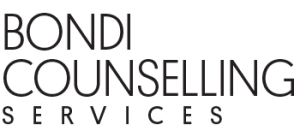
What is a counsellor, and what is counselling?
A counsellor is a trained, objective professional with whom you can build a therapeutic and trusting relationship. They are trained to offer talk-based therapy.
Counselling is a process of talking about and working through your personal problems with a counsellor. The counsellor helps you to address your problems in a positive way by helping you to clarify the issues, explore options, develop strategies and increase self-awareness. For some people, just the process of telling their story to a counsellor, and being listened to, is helpful.
Counselling provides confidential support. This means that everything you discuss with the counsellor is private, between you and the counsellor. The exception is when a counsellor has a duty of care to report something that threatens your wellbeing or the wellbeing of others. This legal requirement will be explained to you in your first counselling session.
There are many different types of counselling and approaches that counsellors use will vary.
Anyone who is struggling with a personal concern can seek counselling. No issue is too big or too small to ask for support. Common issues that people seek counselling for include:
- grief and loss
- communication and relationships issues
- work and career issues
- stress, anxiety and depression
- life transitions such as the birth of a new baby, separation,
- divorce or the death of a family member or friend
- parenting
- addiction
- abuse
- trauma
- self-esteem difficulties.
What is the difference between counselling and psychotherapy?
Counselling usually refers to short-term treatment for a particular problem, such as difficulties in a marriage. Psychotherapy usually refers to longer-term treatment for complex issues that are having a negative effect on a person’s life. There can be a lot of overlap between the two approaches, depending on the needs of the person.
What is the difference between a counsellor and a psychiatrist?
A professional counsellor is not the same as a psychiatrist. A psychiatrist is a medical doctor who has extra training specialising in mental health. A psychiatrist may offer talk-based therapy and can prescribe mood-altering medications to help manage the symptoms of mental illnesses such as severe depression or anxiety.
A counsellor is not a medical doctor and cannot prescribe medication of any kind. A trained counsellor is someone trained to offer a talk-based therapy. There are many different types of talk-based therapy. A counsellor may work in partnership with a medical doctor at times to give comprehensive and integrated care.
Professional qualifications of a counsellor
Do not assume that all counsellors are professionally qualified. There is no law in Australia that requires a person who provides a counselling service to have either qualifications or experience. This means that people without training or skills can call themselves counsellors or psychotherapists.
A trained counsellor has usually spent three or more years studying counselling at university, often at postgraduate level, or has an equivalent level of training in another accredited higher education institution.
PACFA is the peak professional body that provides national standards for counsellors. Trained counselling professionals may include psychiatrists and psychologists who have counselling or psychotherapy training, and members of the professional associations linked with PACFA.
It is important that you find a counsellor who suits you and your needs, and someone you feel comfortable with.

